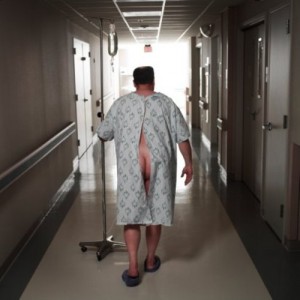From:
BBC  |
| Before the EU was expanded less than 30 Polish people lived in NI |
It has been six years since Northern Ireland experienced an influx of Polish migrant workers under EU expansion.
But how many of those are beginning to put down firm roots? BBC News Online's Emily Thomas explores the integration of Polish immigrants in Northern Ireland.
The view that all Polish people in Northern Ireland are temporary migrant workers is beginning to fade.
As Polish Cultural Week draws to a close, Belfast has for the fourth year running been exposed to all things Polish, from decorative paper cutting to traditional folk music.
The festival does more than display Poland's cultural offerings. The scale of the 11-day event reflects the presence of Northern Ireland's large Polish migrant population.
And the recent recruitment of the first Polish police officer, due to begin work in Newry, Co Down, indicates genuine integration of Polish migrants is increasingly taking place.
This is quite a progression from 2008 when it was revealed that no Polish people were accepted into the PSNI, following a recruitment drive in 2006 that attracted applications from 968 Poles.
Poles apart?
Dr Marta Kempny, of Queen's University, has studied Polish immigration to NI extensively.
She says immigrants find the place "very accommodating", and feel they receive great help from the local institutions and public sector.
But some evidence suggests the situation isn't always so rosy.
Race hate crimes have grown steadily in the past 10 years.
When police started recording racially motivated crime in 1996 there were just 41 incidents, but in the past year 712 racist crimes were committed, and 1,038 racist incidents reported.
A freedom of information request in 2009 revealed that 28% of racist crimes were committed against Polish people.
And in July 2008 an Equality Commission survey found negative views towards minority groups were considerably more prevalent than three years earlier.
These tensions have been shown through a number of racially motivated incidents.
Tensions
In April, a Polish family's shop in Ballymoney was defaced with racist graffiti. Shortly afterwards the family said they would continue to trade - but would remove the sign saying 'Polish shop'.
In the same month the High Court in Belfast heard that there was a "racist motive" to the murder in Newry in 2009 of a Polish man, who had been kicked in the head and had his throat stamped on.
And in June 2009 it was claimed that 40 immigrants left their homes in Belfast amid tensions following riots involving NI and Polish football fans.
Maciej Bator, director of the Polish Association of Northern Ireland, emphasises that it is "just a minority" of people "who think NI is just for the British and Irish" and explains the rise in hate incidents as partly to do with increased awareness amongst Polish immigrants.
"After six years Polish people understand the mechanisms of defence: how they can get in touch with the PSNI and what a hate crime is, and they have the confidence to report crimes," he said.
He said the situation for immigrants is complicated by the "different rules" in "different communities", and says Polish people need "to learn the rules of both".
Dr Kempny acknowledges that discrimination is still an issue, but says it occurs "mostly at work places of individuals, who are often exploited and abused by their employers".
She says the "problem of ethnic hatred and prejudice" has been "gradually decreasing" since 2004, as locals have become more used to newcomers.
A "religious factor" still plays an important role in integration between the Polish and Northern Irish, she said, as "Polish people are considered as predominantly Catholics by the Northern Irish community".
"In my research I came across certain situations in which individuals who rented accommodations in the Protestant areas of Belfast, the Village in particular, have experienced incidents of hate crime", she added.
Dr Kempny emphasises that the process of integration has only just started, with the population becoming stable and people settling to have families and intending to stay permanently.
"More time is needed for some individuals to learn intercultural awareness and tolerance," she said.
Influx
And it's undeniable that Polish people and locals in NI faced a steep learning curve.
The rise in numbers of immigrants to NI over the past six years has been sudden and dramatic.
Before 2004 there were no more than 30 Polish people living in NI, according to Mr Bator.
Since then, the decline in paramilitary violence, the joining of Poland to the EU and the rise of unemployment in Poland led to an influx of Polish immigrants, with the Polish community now estimated to be around 35,000.
This amounts to less than 2% of the population, but a significant proportion of the migrant population; almost 60% of migrants to NI from the new EU states are Polish.
'Suspicious'
Official figures indicate that the immigration rate may now be slowing, partly due to the economic downturn and increased opportunities in Poland.
In fact, Poland is now experiencing its own influx of immigration, explored in Borders, a photographic exhibition for Polish Cultural Week, showing members of different ethnic groups wearing Polish national costumes.
Festival co-ordinator Ewa Grosman hopes that the festival will show the Northern Irish how much Polish culture has to offer.
"The week shows that Polish people in the community bring their own culture that is rich and worth exploring", she said.
Mr Bator says that Northern Irish people are already very curious about Polish culture, with many visiting Krakow.
"The Northern Irish are a bit suspicious at the beginning," he says, "but when you find a way to reach them they are very friendly and welcoming."










































